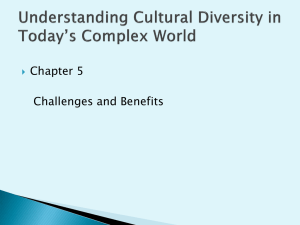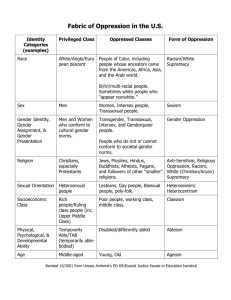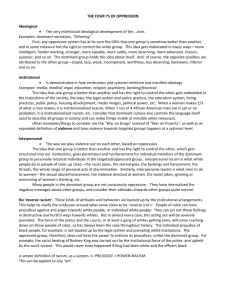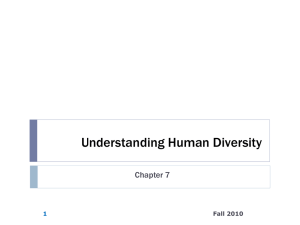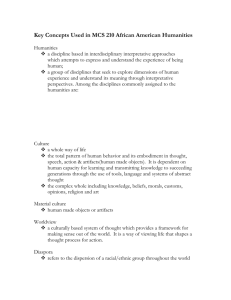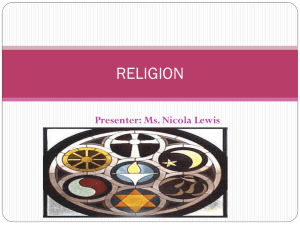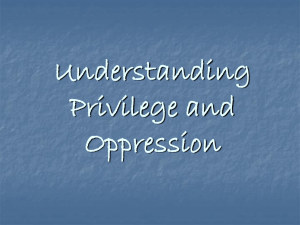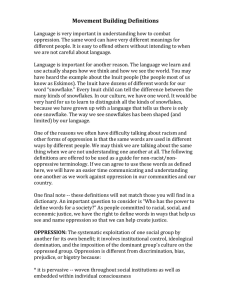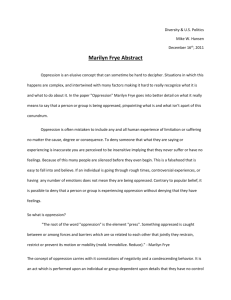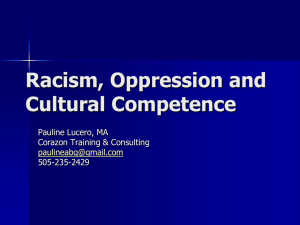Anti-Oppression Keywords
advertisement
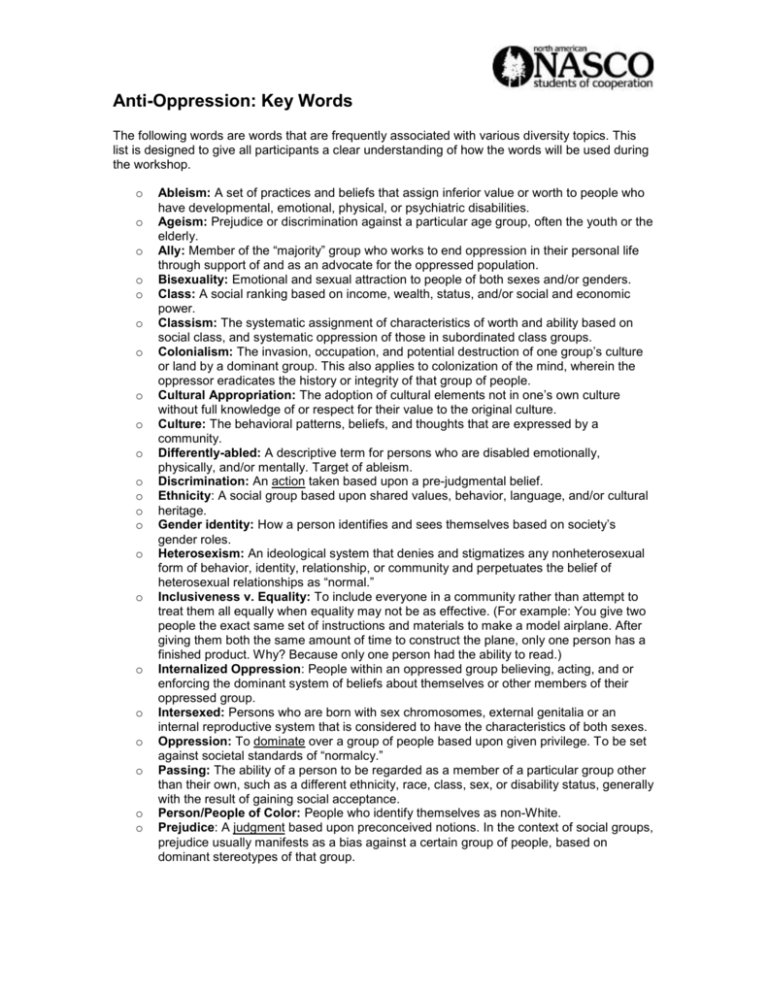
Anti-Oppression: Key Words The following words are words that are frequently associated with various diversity topics. This list is designed to give all participants a clear understanding of how the words will be used during the workshop. o o o o o o o o o o o o o o o o o o o o o o Ableism: A set of practices and beliefs that assign inferior value or worth to people who have developmental, emotional, physical, or psychiatric disabilities. Ageism: Prejudice or discrimination against a particular age group, often the youth or the elderly. Ally: Member of the “majority” group who works to end oppression in their personal life through support of and as an advocate for the oppressed population. Bisexuality: Emotional and sexual attraction to people of both sexes and/or genders. Class: A social ranking based on income, wealth, status, and/or social and economic power. Classism: The systematic assignment of characteristics of worth and ability based on social class, and systematic oppression of those in subordinated class groups. Colonialism: The invasion, occupation, and potential destruction of one group’s culture or land by a dominant group. This also applies to colonization of the mind, wherein the oppressor eradicates the history or integrity of that group of people. Cultural Appropriation: The adoption of cultural elements not in one’s own culture without full knowledge of or respect for their value to the original culture. Culture: The behavioral patterns, beliefs, and thoughts that are expressed by a community. Differently-abled: A descriptive term for persons who are disabled emotionally, physically, and/or mentally. Target of ableism. Discrimination: An action taken based upon a pre-judgmental belief. Ethnicity: A social group based upon shared values, behavior, language, and/or cultural heritage. Gender identity: How a person identifies and sees themselves based on society’s gender roles. Heterosexism: An ideological system that denies and stigmatizes any nonheterosexual form of behavior, identity, relationship, or community and perpetuates the belief of heterosexual relationships as “normal.” Inclusiveness v. Equality: To include everyone in a community rather than attempt to treat them all equally when equality may not be as effective. (For example: You give two people the exact same set of instructions and materials to make a model airplane. After giving them both the same amount of time to construct the plane, only one person has a finished product. Why? Because only one person had the ability to read.) Internalized Oppression: People within an oppressed group believing, acting, and or enforcing the dominant system of beliefs about themselves or other members of their oppressed group. Intersexed: Persons who are born with sex chromosomes, external genitalia or an internal reproductive system that is considered to have the characteristics of both sexes. Oppression: To dominate over a group of people based upon given privilege. To be set against societal standards of “normalcy.” Passing: The ability of a person to be regarded as a member of a particular group other than their own, such as a different ethnicity, race, class, sex, or disability status, generally with the result of gaining social acceptance. Person/People of Color: People who identify themselves as non-White. Prejudice: A judgment based upon preconceived notions. In the context of social groups, prejudice usually manifests as a bias against a certain group of people, based on dominant stereotypes of that group. o o o o o o o o Privilege: Having access to or benefiting from resources and social rewards based on something you have no control over (race, gender, sexual orientation). (A lack of “bumps in the road”) Race: A group of people artificially classified together based on physical appearance, ancestral heritage, and/or ethnic classification. Racism: The belief that one race is superior to another. Found in both individual acts and dominant institutions. Self-Representation: The way someone chooses to present him or herself to the world. Often misused by someone associating one person’s representation to represent a whole community. Sexism: Beliefs and actions that perpetuate the perceived inferiority of non-male identified people and promote stereotyping of social roles based on gender. Stereotype: A label or generalized notion about a group of people. Transgender: Persons who cross gender lines and/or societal gender norms. Transsexual: A person who’s internal image of themselves is opposite from the gender role assigned to them.
